Picking Solutions
SCALABLE, EXPANDABLE AND ADAPTABLE TO THE RIGHT LEVEL OF AUTOMATION REQUIRED: FROM AUTOMATION-ASSISTED MAN-TO-GOODS OPERATIONS, TO FULLY-AUTOMATED MIXED-PALLET BUILDING THROUGH HIGHLY EFFICIENT AND ERGONOMIC GOODS-TO-MAN PROCESSES
FULLY AUTOMATED PICKING SYSTEMS
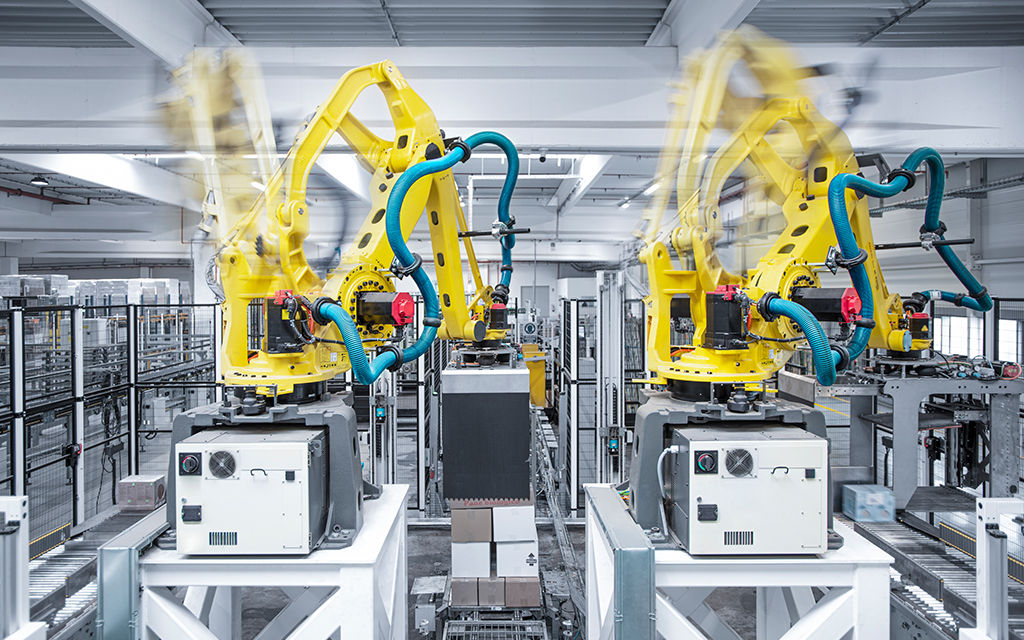
MOPS: FULLY AUTOMATED PICKING SYSTEM
MOPS is the picking system for the fully automated creation of mixed pallets.
The single packages belonging to the initial mono-reference pallet are divided using a depalletizer and then sent to a storage system.
The miniload system extracts the items from the warehouse and directs them to Synchron, which creates the sequence requested by Best Fit software. The items are then directed to an automatic palletizer based on the optimum composition of the client’s (mixed) pallet determined by the Best Fit software.
The system allows complete data traceability. It follows packages step by step and maintains logical data and physical data parallelism across the entire life cycle of the package.
MOPS can deal with a large range of different products (over 95% of products managed within large-scale distribution). Packages are handled without support trays, so the number of items that can be managed through MOPS is very variable: from a couple hundred to a few thousand items.
applications
MOPS is well suited to the food & beverage, retail and E-commerce industries, which are characterised by an elevated number of SKUs and high rotation
It can be used in different temperature conditions within product warehouses
strengths
- Unique technology: the package is handled and stored without the need for trays or other supports
- Modularity: the single modules can be “moved” to create the best specific solution for the customer
- Control: System Logistics is the in-house supplier of the main technologies that compose the system (machinery, hardware, software, engineering)
technology
- Depalletization: the robot dismantles pallets by layer and separates the packages
- Pallet storage: stacker cranes, FRS (Fast Rotation Storage), shuttles
- Pallet transport: SVL (System Vehicle Loops)
- Package storage: miniload system
- Package transport: conveyor belts without the need for support
- Synchroniser/Sequencer: Synchron
- Palletization: automated through a single/double robot or manually-assisted
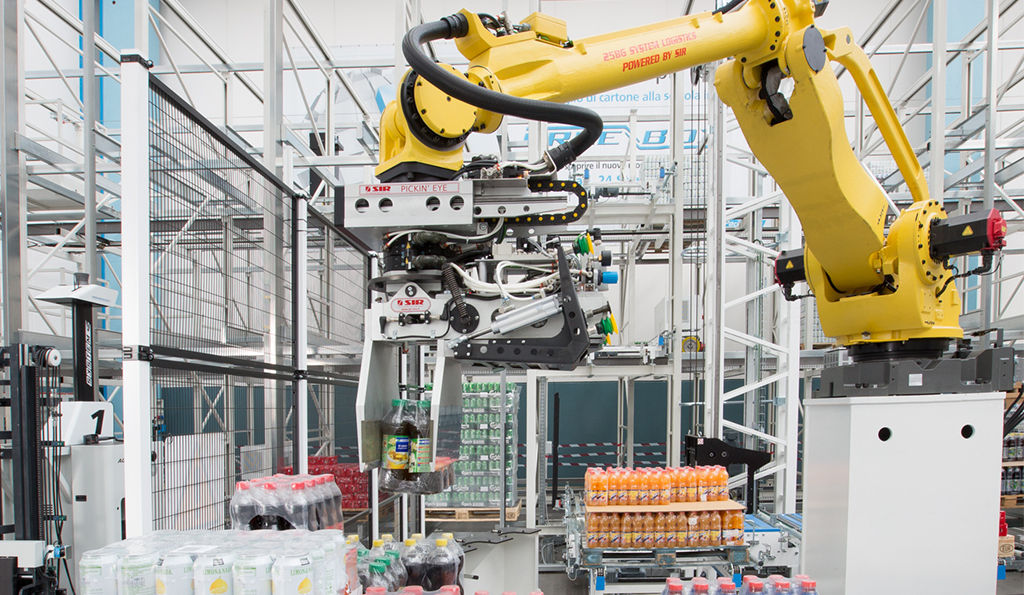
apps: AUTOMATED PICK TO PALLET SYSTEM
- A pallet feeding system (FRS - Fast Rotation Storage), which ensures the right speed of picking operations;
- A robotized handling/manipulation system able to take individual cartons, bundles, cases, etc. from pallets and place them to form mixed pallets thanks to a high-reliability laser vision system.
SEMI-AUTOMATED PICKING SYSTEMS
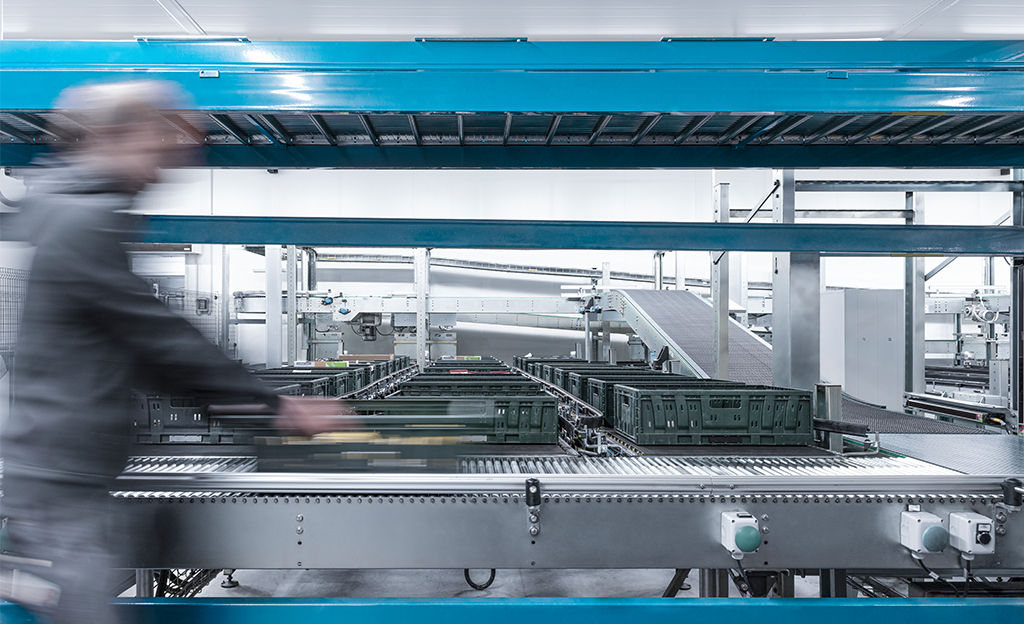
SPL - STEADY PICKING LOCATION
GOODS-TO-MAN SOLUTION
The SPL solution is particularly suited for picking operations with medium picking volumes.
Based on the innovative SVL (System Vehicle Loop) handling systems, pallets are stored or placed in temporary stations and they are sequentially conveyed and sorted to the order picking areas according to FIFO/LIFO criteria, possible stacking classes, reverse picking systems, etc. The pallet is then automatically restored in the warehouse to await shipment.
This solution is normally integrated with an automated warehouse provided with stacker cranes and includes a number of highly ergonomic picking bays equipped with gripping aids, weighing scales, lifting platforms and PC workstations.
The main advantages of this solution are a significant increase in operator performance, improved working conditions, less errors and shorter order processing times.
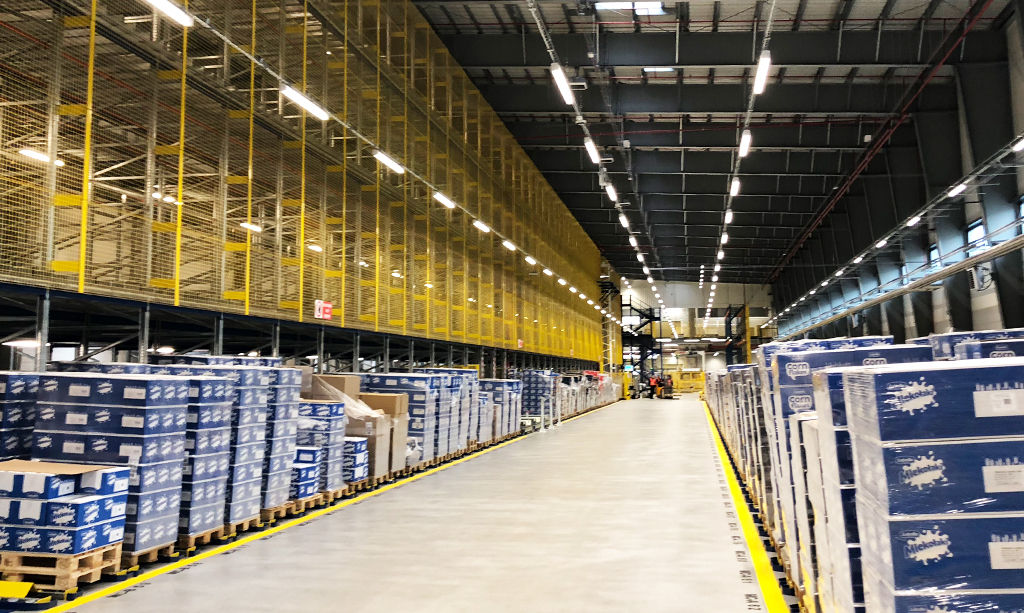
pps - PICK-TO-PALLET SYSTEM
MAN-TO-GOODS AND GOODS-TO-MAN SOLUTION
PPS is an extremely flexible intensive picking system.
As an evolution of the ARP system, it does not require connection to an automated storage system.
The picking operators are guided by the WMS through radio communication, they pick the packages directly from the pallets stored in static positions and/or picking bays and prepare the customer’s pallet on transpallets. Pallets related to low and medium rotation codes are quickly replaced.
PPS is best suited to medium-high and/or variable picking volumes and SKUs, and where picking is particularly divided. The system “automatically” configures itself based on the number of codes to be managed and their frequency of use, and enables considerable workforce savings as well as reduction in the space used.
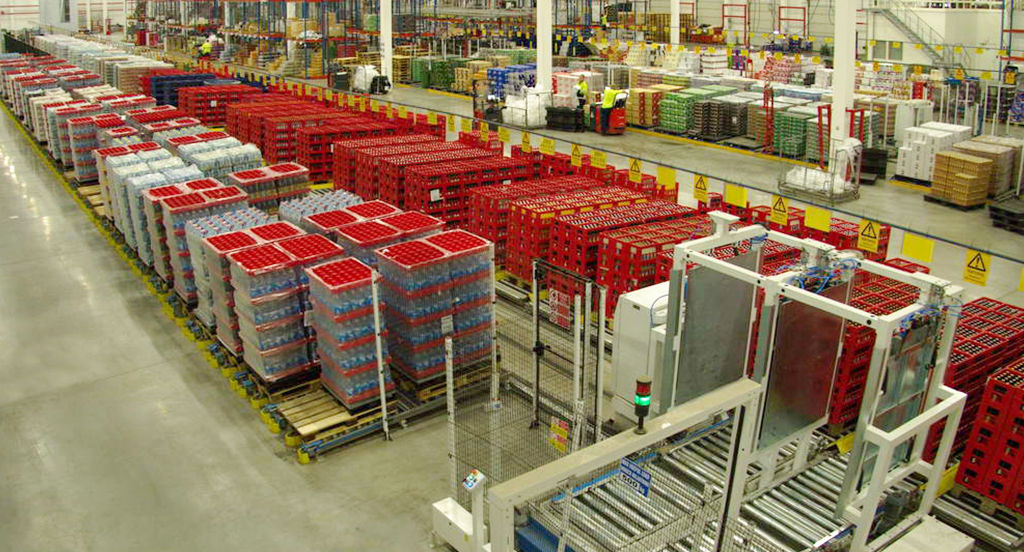
ARP - AUTOMATICALLY REFILLED PICKING
MAN-TO-GOODS SOLUTION
The automated replenishment of goods can be considered the first level of automation in order picking.
ARP solutions use stacker cranes, pallet handling systems or automatic guided vehicles to automatically replenish the supply of goods at picking stations.
Directed by the warehouse management system through RF picking technology, the operator arranges the customer’s pallet by picking goods directly from the pallets on the ground.
Items picked are ordered according to stacking possibilities or rotation class criteria.
The ARP order picking solution is ideal in applications in which there is a high volume of orders processed, but a low number of SKUs.